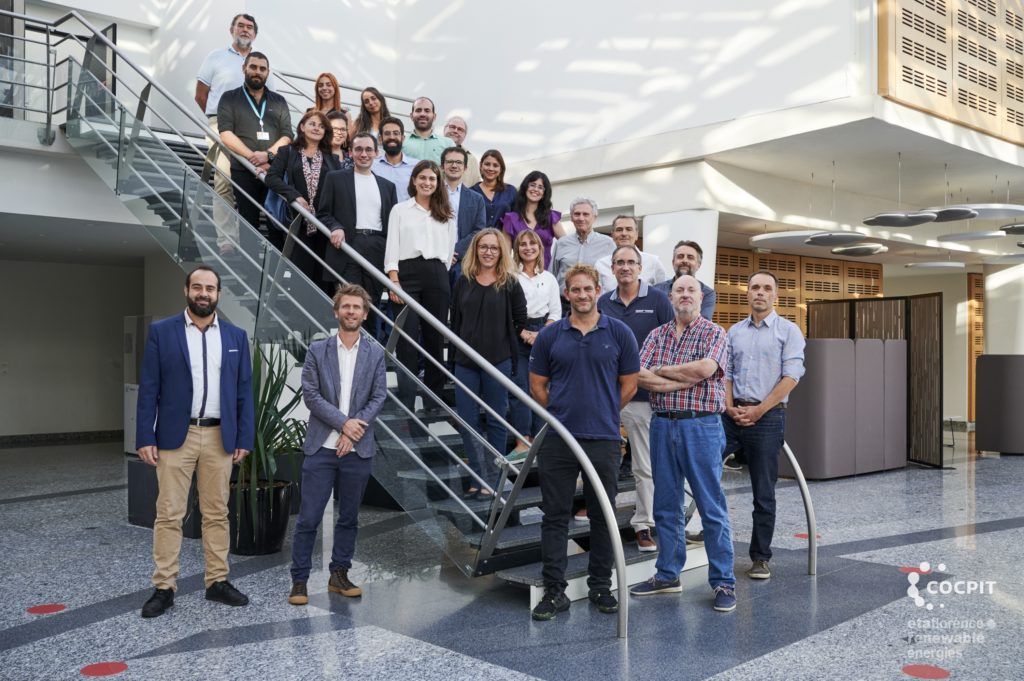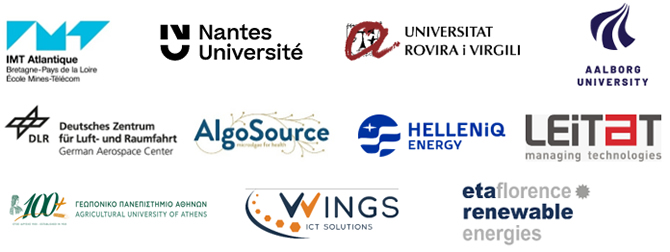Transportation plays a crucial role for European Union to reach the Green Deal’s targets, accounting for the 25% of total EU greenhouse emissions. In particular, maritime and aviation transports represent “hard-to-electrify” sectors, due to the high energy densities required: they currently rely almost on fossil fuels and constitute about one-third of overall EU transport emissions[1].

In order to reduce these sectors environmental footprint, the European Council adopted the FuelEU maritime and the RefuelEU aviation initiative, setting targets of GHG intensity reduction for shipping fuels of 2% in 2025 and up to 80% by 2050[2], as well as a minimum share of SAF (Sustainable Aviation Fuels) equal to 2% in 2025 and up to 70% in 2050[3].
The COCPIT project fits into this virtuous trajectory supporting to the large-scale production of microalgae-based transport fuels delivering an innovative, circular and complete production chain through two pathways: HEFA (Hydroprocessed Esters and Fatty Acids) and HTL (Hydrothermal liquefaction) followed by hydrotreating. COCPIT will also develop a decision tool – based on economic, social and environmental indicators – analysing different scenarios that will guide investors to the best solution for their specificities.
Innovations within the production chain
COCPIT will enable innovations at multiple phases of the production chain: in the cultivation stage the algae strain will be combined in a thin film reactor – to intensify photosynthesis – and covered with a semi-transparent photovoltaic (STPV) shell – to produce electrical power. At the transformation stage of algal biomass into sustainable fuels, ionic liquids will be used to extract lipids and to catalyse the HEFA pathway at the same time, making the process more affordable, efficient and eco-friendly. In the HTL pathway the main obstacles to HTL upscaling (clogging and biocrude separation) will be overcome and a more accurate design tools for reactor and heat exchangers will be implemented. In order to ensure flexibility towards the desired fuel output distribution between shipping and SAF, different upgrading approaches of HTL biocrude will also be established. Furthermore, COCPIT will adopt different techniques to reduce the nitrogen content on the final SAF allowing its certification under American Society for Testing and Materials (ASTM) norms.
Circular approach
The circularity of the value chain will be enhanced by recirculating all coproducts and power streams: dark fermentation will valorise different byproducts to generate hydrogen for fuel refining purposes, aromatics as fuel boosters and to recirculate nitrogen and phosphorus to the PBR. Moreover, using STPV panels feeds the system with power from the infrared spectrum of solar radiation, all along with reducing PBRs cooling utility. Circularity within installation environment will also be ensured by studying different scenarios involving biogenic effluents, waste-to-energy facilities and CO2 existing in the vicinity of the production site in order to create industrial symbiosis.
Comprehensive sustainable aviation and maritime fuels marketplace
The COCPIT AI based decision tool will be fast and flexible, allowing the examination of several prospective scenarios, the comparison of established and novel technologies and the identification of the most sustainable conversion pathways. Moreover, COCPIT will work towards the centralisation of sustainable transport fuels innovations, delivering a comprehensivemarketplace where the COCPIT decision tool and a range of technological solutions will be at investors’ service, helping them to choose the best solution for their algal-based fuels project.
About COCPIT
COCPIT – Scalable solutions Optimisation and decision tool Creation for low impact SAF Production chain from lipid-rich microalgae strain is a 4-years Horizon Europe Research and Innovation Action project started the 1st October 2023.
Partners
Coordinated by IMT Atlantique , COCPIT has a consortium of 11 partners from 6 different EU countries. The project is carried on by an international consortium composed by 5 academic partners and 6 non-academic partners, whose activities cover the whole production process, from microalgae treatment to sustainable fuels pre-screening and the scenario development, as well as the decision tool and marketplace development.
Contacts
- Sary Awad (Project Coordinator, Associate Professor – IMT Atlantique): sary.awad@imt-atlantique.fr
- Julien Prud’homme (EU Project Manager – IMT Atlantique): julien.prudhomme@imt-atlantique.fr
- Claudia Batini (Communication and Dissemination Manager – ETA): claudia.batini@etaflorence.it
- Email: info@cocpit-horizon.eu

This project has received funding from the European Union’s Horizon Europe Research and Innovation Programme under Grant Agreement No. 101122101. Views and opinions expressed are however those of the author(s) only and do not necessarily reflect those of the European Union. Neither the European Union nor the granting authority can be held responsible for them.
[1] Fit for 55: increasing the uptake of greener fuels in the aviation and maritime sectors – Consilium (europa.eu)
[2] FuelEU maritime initiative: Council adopts new law to decarbonise the maritime sector – Consilium (europa.eu)
[3] RefuelEU aviation initiative: Council adopts new law to decarbonise the aviation sector – Consilium (europa.eu)

Source
Eta-Florence, press release, 2023-12-20.
Supplier
Aalborg University Copenhagen
Algosource Technologies
American Society for Testing and Materials (ASTM)
Deutsches Zentrum für Luft- und Raumfahrt e. V. (DLR)
ETA-Florence Renewable Energies
European Commission
European Union
IMT Atlantique
Leitat Technological Center
Universitat Rovira i Virgili
University de Nantes
Share
Renewable Carbon News – Daily Newsletter
Subscribe to our daily email newsletter – the world's leading newsletter on renewable materials and chemicals









